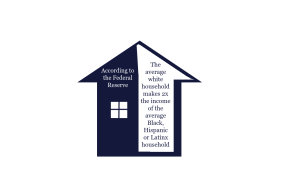Striking down affirmative action: college admissions should not be based on race

College admissions should be based on qualifications rather than race.
January 23, 2023
In the 21st century, the need for diversity only causes more division between ethnic groups, and affirmative action is at the center of it all. Although affirmative action policies were initially intended to eliminate discrimination, nowadays they only end up hurting all parties involved. On top of this, there are other ways to make college admissions and job applications a truly fair competition.
The college admissions game is extremely competitive, and potential students try everything to get accepted into their dream school. So how is it fair that, if deciding between two equally qualified applicants, a college will choose the more “diverse” person? If we are a society that’s truly trying to become racism-free, why are we still considering race as a factor in who gets more opportunities?
Although Justice Ketanji Brown Jackson claims that, “race can provide context for [student] experiences,” we shouldn’t assume that just because someone is a certain race means that they have had more struggles or experiences than other applicants – that’s an offensive generalization. Additionally, there are more valuable criteria than race to consider, such as athletics, extracurriculars and grades, as well as characteristics such as determination, leadership and hard work.
These characteristics don’t have to be shown through fancy internships or workshops, either – they can be demonstrated by any race, through tutoring other students, helping out at home or excelling at school. Rather than making race a factor in college admissions, we should admit the students who are the most qualified and who show desirable qualities in their everyday lives.
Affirmative action doesn’t always help those who truly have a disadvantage, too. In fact, the Hoover Institution’s Thomas Sowell found that, “preferences primarily benefit minority applicants from middle- and upper-class backgrounds. At the same time, because admissions are a zero-sum game, preferences hurt poor whites and even many Asians.” Affirmative action would be much more beneficial if it actually helped disadvantaged minorities, but it doesn’t, in fact, help those of the lower class who struggle financially.
Affirmative action hurts those involved, whether it’s taking away someone’s well-deserved opportunity or lowering someone else’s self-esteem. For example, say a Black candidate and an Asian candidate are both being considered for admission to their dream college. Let’s say that the Asian candidate is more qualified, but the Black candidate is given the spot for “diversity” purposes.
In this situation, not only is an amazing opportunity being taken away from the more qualified Asian candidate, but then the Black candidate’s self-esteem is lowered because they were given the spot not because they earned it, but only because a college needed to seem more diverse. With affirmative action, we can’t tell if someone was accepted into a college because they earned it or because they were a certain race. Affirmative action can negatively affect both sides, and the more qualified candidate, regardless of whether they are white, Asian, Black, Hispanic or other, should be accepted.
Additionally, a 2019 Pew Research Center study on American trends proved that 73% of Americans believed that race should not be a factor in college admissions, and 81% believed that gender should not be a factor as well. The majority of Americans understand that admissions should be based on one’s characteristics and hard work rather than social constructs.
Finally, there are better alternatives to affirmative action that will remove discrimination from the admissions process. I believe, like the majority of Americans, that race and gender should not be on college admissions at all. If we take the question of race or gender off of applications, there is no way to discriminate against minorities or accept one person over another because they are more “diverse.”
There are other ways for minorities to receive help, too, such as scholarships based on race, merit, or leadership. Many colleges give out money to those with low family income, high test scores or outstanding grades. Affirmative action is not the only answer, and students who are truly at a disadvantage can be helped.
The only way to stop discrimination when it comes to college or job applications is to simply not consider one’s race at all. We cannot move on to a post-racism society until we stop valuing people based on their race. Removing affirmative action can be the first step towards a less divided society.





